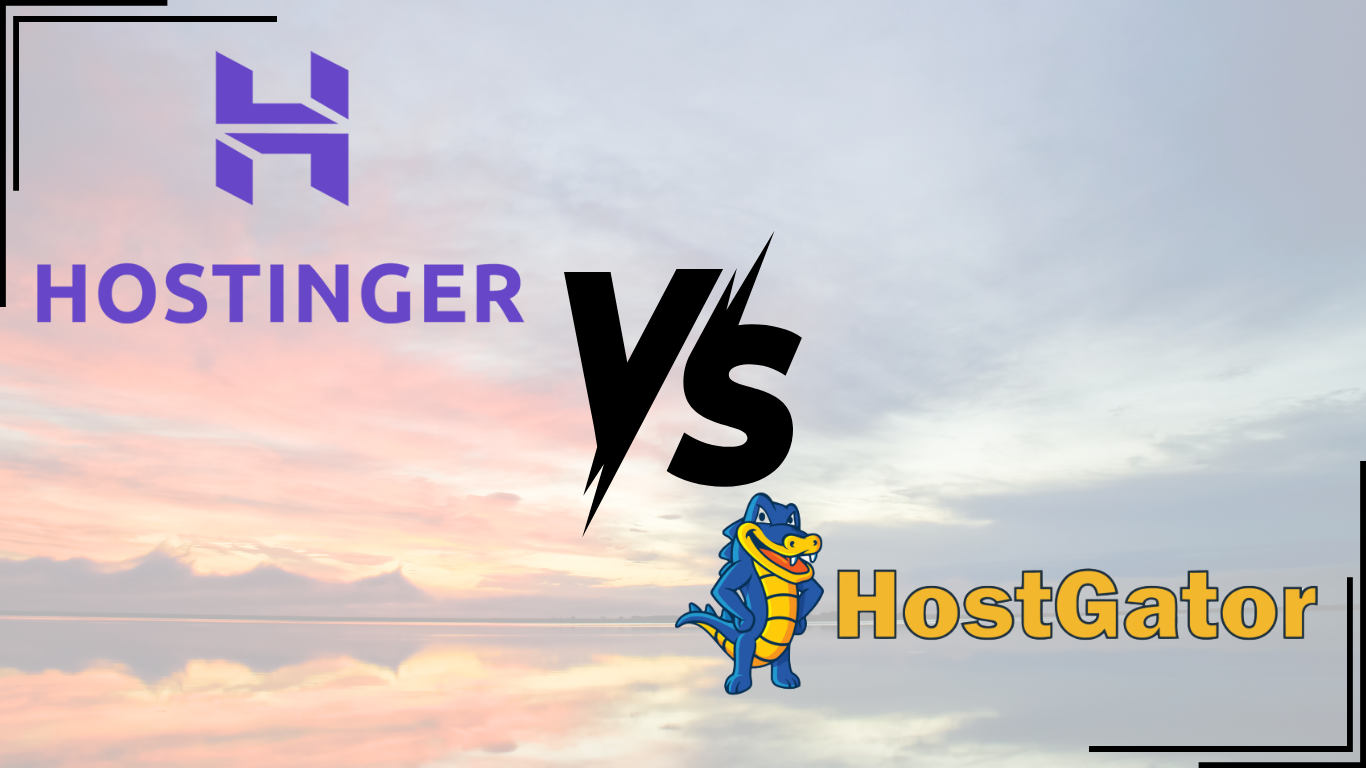When it comes to launching a website, selecting the right hosting provider is one of the most critical decisions you’ll make. Two popular names in the industry are Hostinger and HostGator. Both have their own strengths and weaknesses, making it essential to compare them based on key features, performance, pricing, and customer support.
In this article, we’ll dive deep into the differences between Hostinger and HostGator to help you decide which hosting service best suits your needs.
1. Pricing Plans
Hostinger is known for offering some of the most affordable web hosting plans on the market, making it an ideal choice for small businesses, startups, and personal websites. Its basic shared hosting plan starts as low as $1.99/month, which is one of the lowest in the industry. Additionally, Hostinger offers competitive pricing for WordPress hosting, VPS hosting, and cloud hosting.
HostGator, while affordable, is slightly more expensive than Hostinger. Its shared hosting plan starts at $2.75/month. However, HostGator frequently offers promotions, making it more accessible for users looking for budget-friendly options. HostGator’s pricing is competitive across different hosting types, such as dedicated servers, VPS, and reseller hosting.
Winner: Hostinger offers a lower starting price, making it a winner for budget-conscious users.
2. Performance and Speed
Hostinger uses LiteSpeed Web Server technology, known for its ability to handle high traffic loads and improve website loading speeds. It also has data centers located across the globe, which helps minimize latency and boosts website performance. Hostinger guarantees a 99.9% uptime, ensuring your site is up and running almost all the time.
HostGator, on the other hand, uses standard server infrastructure, which is reliable but not as cutting-edge as Hostinger’s LiteSpeed technology. While HostGator also guarantees 99.9% uptime, some users have reported occasional downtime issues. In terms of loading speeds, HostGator’s performance is solid but doesn’t match the optimization levels that Hostinger provides.
Winner: Hostinger takes the edge with its superior technology and faster loading speeds.
3. Ease of Use
Both Hostinger and HostGator provide user-friendly interfaces that are easy to navigate, even for beginners.
Hostinger uses a custom control panel called hPanel, which is designed to simplify website management. It’s clean, intuitive, and provides easy access to essential features like domain management, email setup, and file management. While it’s not cPanel (the industry standard), hPanel is a refreshing alternative for users looking for something simpler.
HostGator uses the well-known cPanel, which has been an industry standard for years. While it might be more complex for beginners compared to hPanel, cPanel is robust and has a wide array of advanced options for users who prefer more control over their website hosting environment.
Winner: This one is a tie. Hostinger is better for beginners due to its simplified hPanel, while HostGator’s cPanel caters to more experienced users.
4. Customer Support
Customer support is vital, especially if you’re running a business website that needs to be up and running 24/7.
Hostinger offers 24/7 customer support through live chat, email, and a vast knowledge base. However, they don’t provide phone support, which could be a drawback for users who prefer speaking to someone directly. The live chat team is highly responsive and knowledgeable, but there might be a slight wait during peak times.
HostGator offers 24/7 customer support via live chat, phone, and email. Their customer support team is generally praised for quick resolutions, and the added phone support gives it an edge over Hostinger.
Winner: HostGator wins this round due to its phone support option.
5. Features and Extras
Both providers offer a variety of features designed to enhance your hosting experience.
Hostinger includes free SSL certificates, free domain registration (with certain plans), and a user-friendly website builder with drag-and-drop functionality. The platform is also optimized for WordPress, making it an excellent choice for bloggers and small business owners using the CMS.
HostGator provides unlimited storage and bandwidth with most plans, which is great for growing websites. They also offer free SSL certificates, a free website builder, and one-click WordPress installation. Additionally, HostGator provides a more extensive range of hosting services, including reseller hosting and dedicated servers, making it suitable for larger businesses.
Winner: HostGator has a slight advantage due to its more robust service range, although Hostinger still offers plenty of value, especially for smaller sites.
6. Security
Security should be a top priority for any website owner, and both Hostinger and HostGator offer adequate protection.
Hostinger provides regular automated backups, malware protection, and SSL certificates for encryption. They also offer Cloudflare protection to improve site security and performance, especially against DDoS attacks.
HostGator includes free SSL certificates, automatic backups (though only weekly), and advanced security features. They also offer SiteLock monitoring to prevent malware infections, as well as CodeGuard for daily backups.
Winner: HostGator takes this category due to its more frequent security backups and additional tools like SiteLock.
Final Verdict: Which Should You Choose?
- Choose Hostinger if you are looking for an affordable, fast, and user-friendly hosting service, especially if you are a beginner or running a small-to-medium website.
- Choose HostGator if you prefer more advanced hosting options, need phone support, or plan to scale your website to a larger business with higher traffic and more complex needs.
In conclusion, both Hostinger and HostGator are excellent hosting providers, and your choice depends on your specific needs and preferences. Hostinger is great for those on a tight budget or who prioritize speed, while HostGator shines with its robust customer support and more feature-rich plans.





